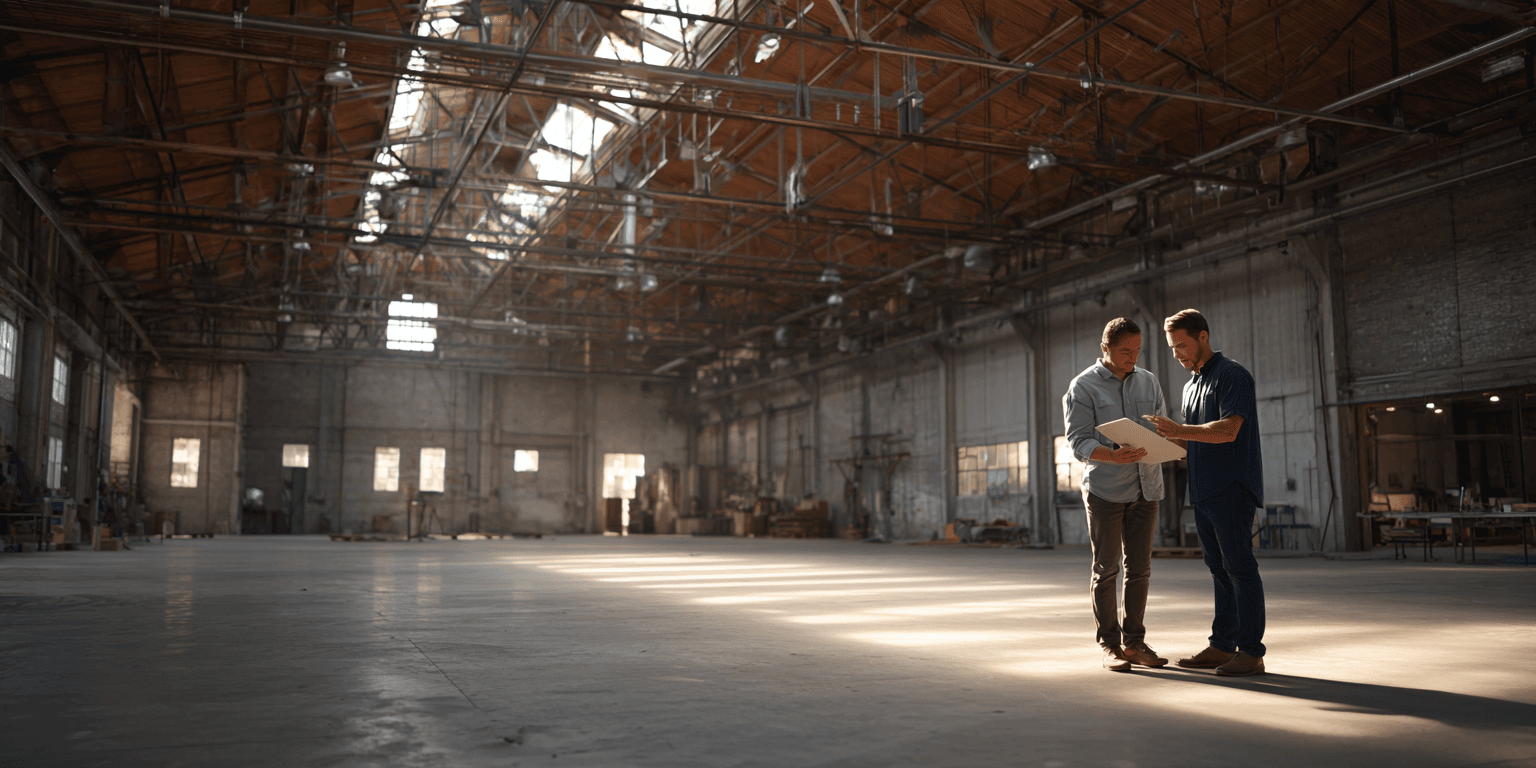Navigating the world of commercial real estate acquisition can be both exciting and daunting. The purchase of a commercial property is not simply a business transaction—it’s a major financial commitment. Buyers must consider multiple factors, including financing, potential returns, market conditions, and the property’s physical state. Unlike residential deals, commercial properties involve higher stakes. The risks are amplified by larger property values, diverse tenant needs, and the intricate zoning and code regulations that often govern these spaces. Each stage of the transaction carries significant weight, with decisions about the property’s condition having the power to affect profitability for years to come.

At the heart of a safe acquisition is real estate due diligence. This process is not just paperwork; it’s the foundation for sound investment decisions. Due diligence involves collecting the information needed to assess financial, legal, and, critically, the physical aspects of a property. Among all the steps, a commercial building inspection stands out as central. This inspection digs deep into the property’s true condition—not just how it looks to a casual observer. By examining the building’s structure, safety, and functionality, an inspection uncovers crucial details often overlooked in a basic walk-through. These details can inform negotiations, budgeting for repairs, and planning upgrades—all essential tasks for securing a good return on your investment.
Forgoing an inspection might appear to save time or money, but the reality is starkly different. Hidden defects, aging systems, or code problems can turn a promising opportunity into a costly disappointment. Even industry pros know that every property is unique, with potential risks that aren’t obvious at first glance. Skipping inspection not only risks your investment but can also lead to costly and disruptive surprises.
A detailed commercial building inspection isn’t just about identifying what’s wrong—it’s about giving you knowledge and leverage. Whether you are expanding your business or entering commercial real estate for the first time, understanding the importance of inspections will help you make better decisions, avoid hidden risks, and lay a solid foundation for success.
Pro Tip: Before you negotiate a purchase, schedule a commercial building inspection early. Their findings provide leverage, help set repair priorities, and ensure your investment fits your long-term goals. For tailored advice and reliable support, call to schedule your inspection appointment today.
Buying commercial real estate is often seen as a sign of progress, but it comes with risks—many of which are invisible during a simple tour. While a property may look okay on the surface, professional inspections often uncover issues that only experts know how to spot. Water damage under floors, weakened support beams, a worn-out roof—all can be missed unless you know what to look for. These issues can threaten both safety and your investment if not addressed.
The systems that keep a building running, like electrical and HVAC, present their own challenges. Electrical panels could be overloaded, old wires may be hazardous, and an aging air conditioner or heating unit may need replacement soon. Outdated or poorly maintained systems are not only prone to failure, they can also make tenants unhappy and increase your operating costs. Replacing or fixing these systems after the sale is almost always costlier and more disruptive than dealing with them upfront.
Another major concern uncovered during inspections is code compliance. Building codes change over time, and a property that has been around for years may not meet today’s fire safety or accessibility standards. Inspectors are specially trained to spot things like out-of-date emergency exits, broken alarms, or non-compliant features for disabled access. Fixing these problems later usually means expensive renovations and, sometimes, delays in opening your new business.
Neglecting property maintenance can also erode your investment returns. Deferred repairs—such as ignored wiring, old pipes, or leaky roofs—can leave you holding the bag for upgrades down the line. Unanticipated fixes hurt your bottom line and may drive away future buyers or tenants. Preparing for these sometimes-invisible risks ahead of time gives you a big advantage and lets you make smarter choices about the property.
Pro Tip: Don’t go it alone. Bring in a trusted commercial inspector to review properties before you make a commitment. Their trained eyes can help you spot hard-to-detect issues and keep your investment safe from surprise repairs. Call for an appointment today to get started on secure footing.

Skipping a commercial inspection is never a good idea for anyone serious about real estate investment. Here’s why: First, inspections catch the “hidden stuff”—issues you can’t see with a quick visit, like flaws in the foundation, outdated wiring, failing heating and cooling systems, or even environmental hazards. If these problems aren’t found before you close on the property, fixing them later could become extremely expensive, eroding your expected returns.
Inspection reports provide clear, tangible facts about a building’s condition. This information is powerful during negotiations. If an inspector uncovers costly repairs, you can use these findings to negotiate a lower price, request credits, or ask for repairs to be made before taking ownership. This level of transparency helps set fair expectations for both buyers and sellers, creating a negotiation environment built on openness rather than guesswork.
Lenders, insurers, and even local governments may require inspections before finalizing a sale. Making sure your property is compliant before you buy not only reduces your risk, it can keep you in good standing with banks, insurers, and regulators. Completing this vital step brings peace of mind and helps protect against future legal headaches.
Finally, inspections help your asset hold its value long-term. Buildings with undetected maintenance issues tend to lose value quickly and cost more to maintain. Tackling problems early means your building stays safe, functional, and appealing to tenants, all of which support consistent returns.
Pro Tip: Always choose an inspector with experience in the type of commercial property you’re buying. Commercial spaces are complex, and having an expert who understands industry-specific issues is key. To safeguard your investment, call to schedule your inspection before finalizing any purchase.

A commercial building inspection is not simply a step to cross off on a checklist—it is a strategic tool for anyone invested in real estate success. In commercial transactions, there’s a lot more at stake, and a thorough inspection gives you critical information that can mean the difference between a great investment and a costly mistake.
Having an inspection completed as part of due diligence ensures you’re not walking into a situation with your eyes closed. Many issues, such as electrical hazards, leaking roofs, or weak building structures, are rarely caught by untrained observers or during casual tours. By inviting an experienced inspector to review the property before closing, you bring more certainty to your acquisition—reducing surprises and giving you a stronger negotiating position.
Beyond the checklist of found issues, inspection reports are great decision-making tools. An inspection gives you documentation on what works, what doesn’t, and what might need attention soon. This insight allows you to plan maintenance, forecast budgets, prioritize capital improvements, and tackle renovation projects based on actual needs—not guesswork. If a major problem is uncovered, you may have leverage to negotiate with the seller for repairs, credits, or even a reduced sale price.
Objectivity is key in commercial real estate. Professional inspectors have the training to check every aspect of a commercial property, from roofing and fire systems to elevators and ADA compliance. Their methodical processes ensure that nothing slips through the cracks. They’re also knowledgeable about local and federal regulations, meaning they can point out potential code violations or areas that may require work to bring a property up to standard.
Pro Tip: Choose a qualified inspector with experience in the type of property you’re buying. Their insight makes all the difference in how you interpret inspection results and plan your next steps. Don’t risk leaving important things to chance—schedule a professional inspection as part of your acquisition strategy.
At every step of buying commercial real estate, one action stands out as truly essential: the commercial building inspection. This process is the bedrock of due diligence, a safeguard for your financial and legal interests. The main benefit of an inspection is the protection it offers—you avoid being blindsided by expensive or dangerous issues after closing.
A comprehensive inspection gives you a clear picture of the building’s health. With this knowledge, buyers can negotiate repairs, adjust prices, or if the problems are too great, walk away. This proactive approach saves you money and helps avoid headaches related to hidden liabilities or unexpected repairs.
Making inspections a standard part of your transactions supports your reputation as a smart, confident investor. Skipping this step is gambling with your capital and could expose you to avoidable losses. Whether you’re new to commercial real estate or have years of experience, always require a thorough inspection before finalizing a purchase.
To get the most out of the process, find an inspector known for their expertise in commercial properties. Before signing contracts, schedule the inspection early. This step ensures you get detailed, expert reports—your playbook for success and confidence in your deal.
Pro Tip: Don’t let urgency rush your decision. Book your inspection with a professional early in the process—your future returns and peace of mind depend on careful due diligence.